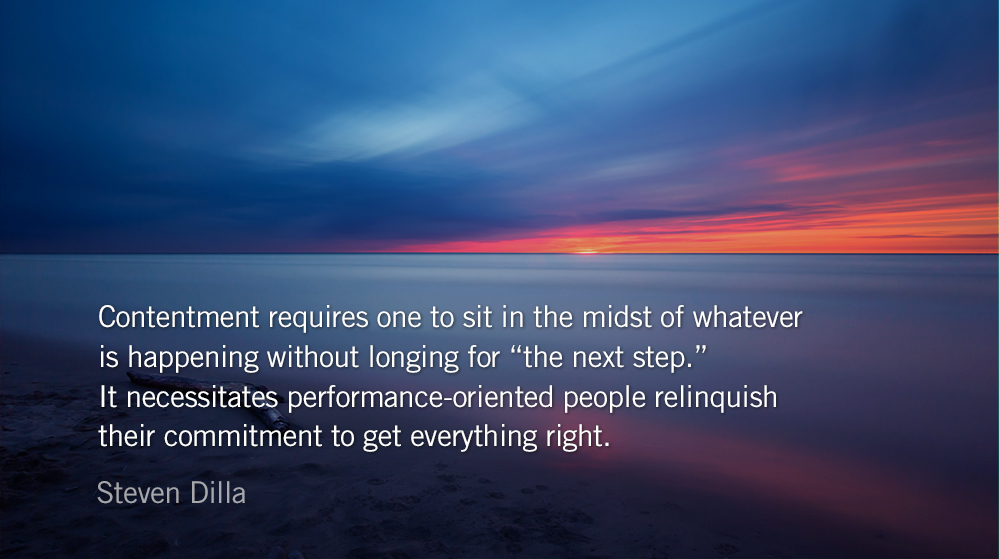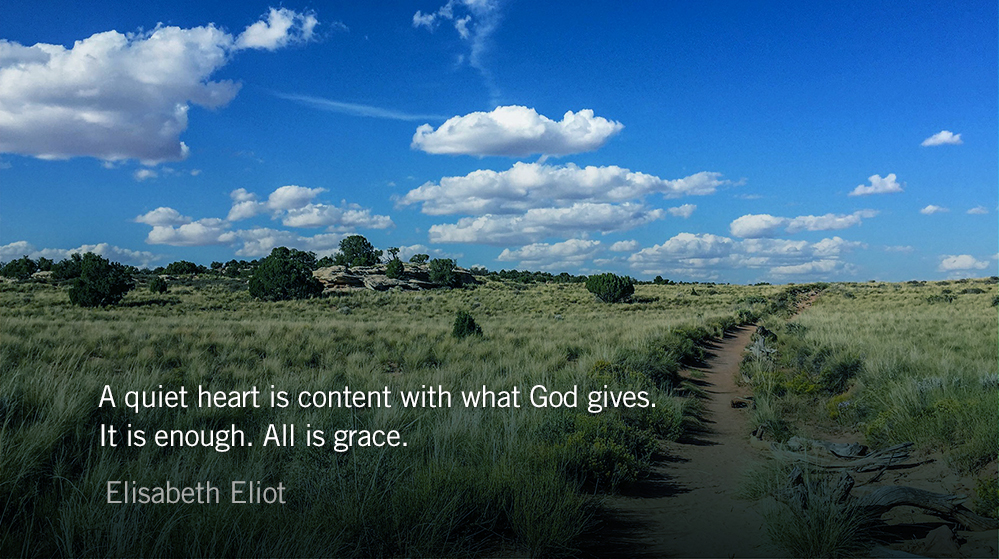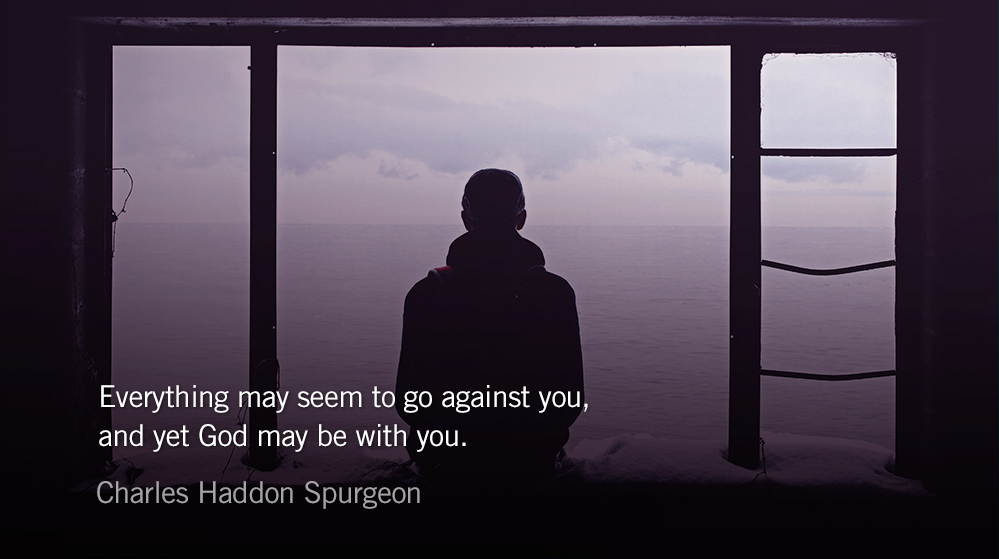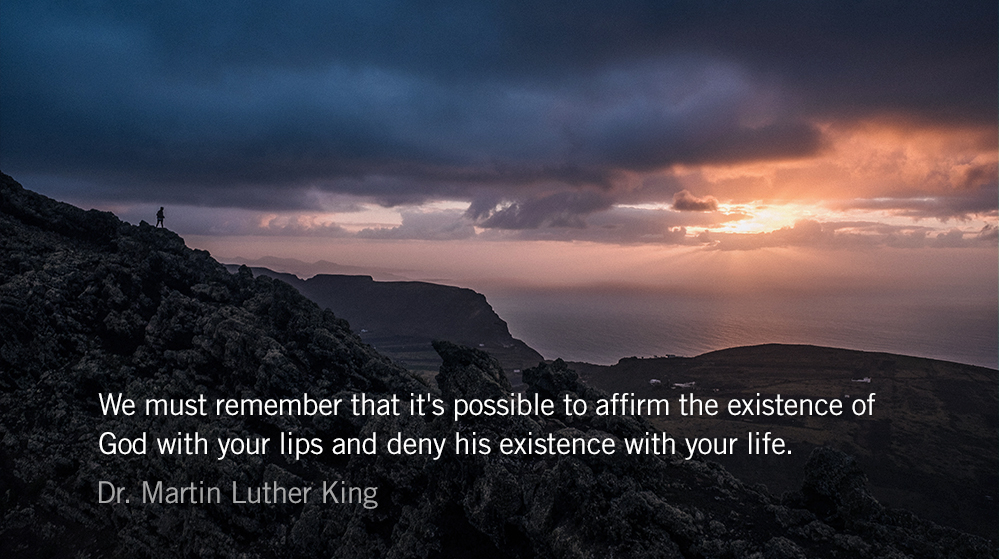I’ve been pestering God lately about what my “next step” should be. He’s been pestering me about my need to rest content in where I am right now. He’ll present that next step when He wants me to take it and not a moment sooner. So I wait. Contented. — Sam
Conclusion or contentment? My choice would be closure. Get things done and move on to the next objective; that’s my fallback. This devotion reminds me that it is in the relinquishing of control and the drive for perfection that God brings me face to face with my own need for the Gospel. — Donna
Readers’ Choice (Originally published October 4, 2016)
For my soul is full of troubles, and my life draws near to Sheol. — Psalm 88.3
If Christianity has lost anything in the transition from its eastern roots to modern western culture it is surely its emphasis on contentment. It takes enormous energy to find contentment in the day-to-day of material-oriented life—let alone to find it in the depths of pain and discomfort.
The journey of contentment is often short-circuited by our appetite for conclusion. Contentment requires one to sit in the midst of whatever is happening without longing for “the next step.” It necessitates performance-oriented people relinquish their commitment to get everything right. Sitting in contentment isn’t about getting answers, but gaining understanding.
In The Resurrection of the Son of God, bishop N.T. Wright contrasts what the authors of scripture ought to have felt with the reality they confess in their deepest struggles:
When this strong faith in YHWH as the creator, the life-giver, the God of ultimate justice met the apparent contradiction of the injustices and sufferings of life, at that point there was, as we have seen, a chance of fresh belief springing up. Not that the sufferings of Israel always evoked this response. Psalm 88, and the book of Job, are evidence to the contrary.
Psalm 88 is disturbing not only because, as Spurgeon says, it is, “the darkest of all the Psalms; it has hardly a spot of light in it,” but because it doesn’t even try to move forward out of the abyss.
The psalmist pours out pain, frustration, and disappointment before God. The lament is unapologetic and lacks a move toward restoration: it weeps, aches, complains, and accuses. Then it ends.
Contentment, in this way, is not satisfaction in the moment but the ability to be fully present. It creates margin for the exploration of the soul and space for transparency in what was found. Contentment’s fruit is born not in resolution, but in presence.
We fear contentment because it has become conflated with complacency. How can we rest at peace when there are great things to accomplish, proper beliefs to be held, and greener pastures in which we could find ourselves? And so we press on—unaware, performing, and restless.
The invitation of Psalm 88 is to stop. Discover where you are—don’t judge it against where you ought be, or what you ought believe—just find yourself. It’s only here that the journey of authentic community and renewal in the gospel can take root.
The Cry of the Church
In the evening, in the morning, and at noonday, I will complain and lament, and he will hear my voice.
– From The Divine Hours: Prayers for Summertime by Phyllis Tickle.
Full prayer available online and in print.
Today’s Readings
Judges 11:12-40 (Listen – 5:53)
Acts 15 (Listen – 5:43)
This Weekend’s Readings
Judges 12 (Listen – 2:21) Acts 16 (Listen – 5:53)
Judges 13 (Listen – 3:44) Acts 17 (Listen – 5:28)











